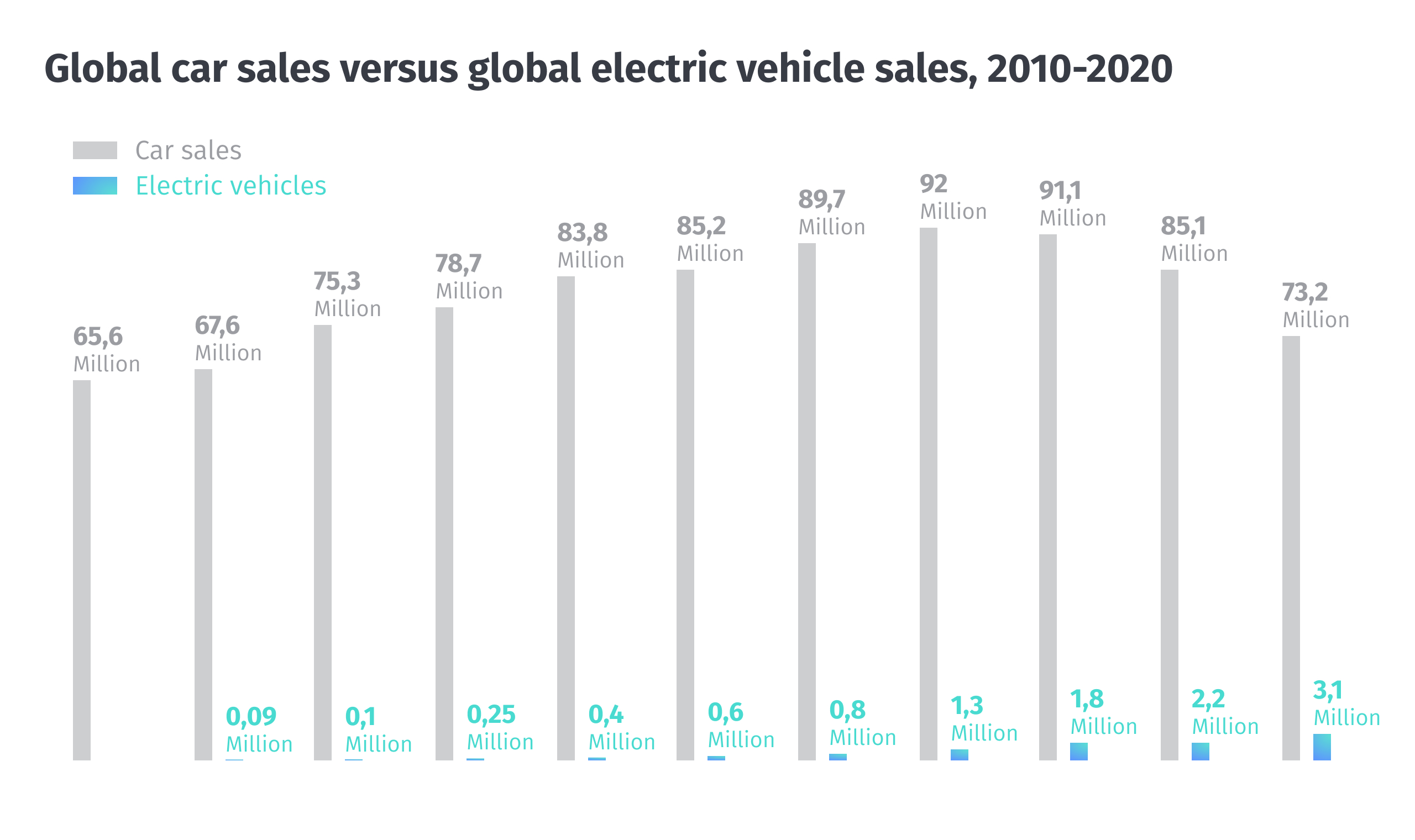Is this the end of EV range anxiety?

Electric vehicles are on the rise in fleets all over the world, and evidence shows they are increasingly being used for longer distances.
Fleet managers are resisting the urge to go electric due to fears about range anxiety, right? Wrong — or at least, that's what a new survey seems to suggest.

While there is much talk of some regions reaching "peak car", EV sales are on the rise.
The majority of electric vehicle (EV) drivers in the UK who were questioned for it said they had driven more than 200 miles in a single trip. Almost a quarter of respondents — 24% — said they have driven more than 300 miles in one trip. Over 7% had done the long haul and driven more than 500 miles in a single journey. Only 15% of those surveyed had done less than 100 miles.
It all suggests that range anxiety is becoming less of an issue. It is often framed as a “chicken-and-egg" problem. Until there is greater adoption of EVs, there won't be enough charge points for most individuals and companies to justify buying EVs. But 90% of the 3,000 questioned said they were highly satisfied with their EV and were not put off by worries about how far they could travel.
Fleet managers may decide to go electric based on the abundance of charging points on their routes.
Charging ahead
EV adoption increased by 80% in the past year, but worldwide, they still accounted for a relatively small share of overall car sales. Some commentators have pointed to a rise in used car sales in regions such as the US as an indicator that we are close to reaching "peak car", though EV sales are not slowing down.
What does all this mean for fleets?
In 2021, fleet registrations fell in many regions but EV uptake increased. In some regions, the uptick was notably high: in Belgium, for instance, that figure was 25%. The question for many countries is whether they will be able to meet ambitious emissions targets on time. In the US, President Biden has set out a plan to make half of all vehicles sold electric by 2030.
"The biggest thing that's happening here is there's a realization, on the part of both labor and business now, that this is the future. We can't sit by," he told reporters at the White House. Meanwhile, a recent Greenpeace report found that China is not moving quickly enough to meet its EV goals.
Incentives such as the ones offered in the US will be encouraging for fleet operators, but they will also need to know their EVs are reliable and efficient. Maintenance costs can be cheaper with EVs, with some estimates putting that figure at 30%.
EV adoption can also help companies meet ESG targets. However, full range must be understood and prepared for. Combining a fleet's data with detailed map information on charging point locations can make for the most effective routing tools. HERE EV Charge Points can help fleets to maximize battery efficiency by creating the right route based on vehicle type and including the right charging locations. Location technology undoubtedly has an important role to play as range anxiety gradually recedes into the distance.
Have your say
Sign up for our newsletter
Why sign up:
- Latest offers and discounts
- Tailored content delivered weekly
- Exclusive events
- One click to unsubscribe